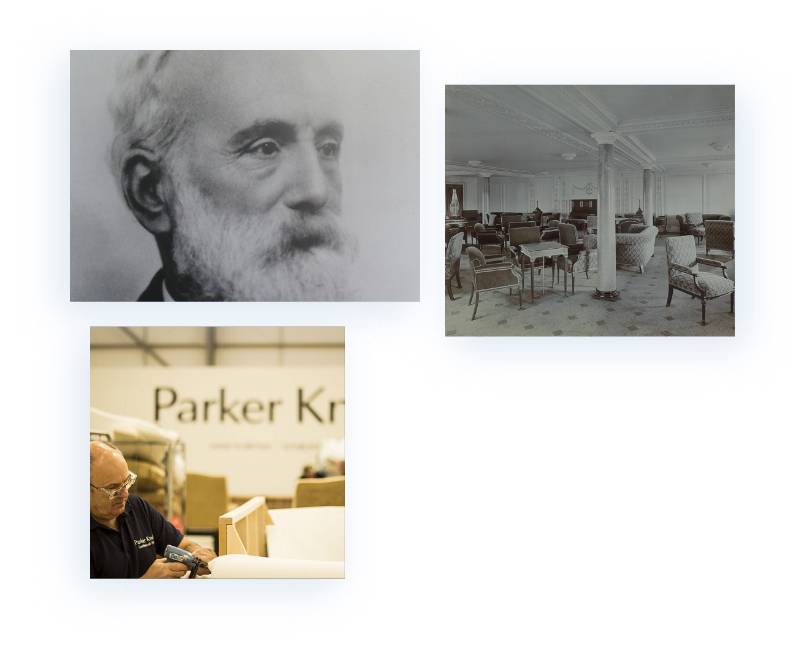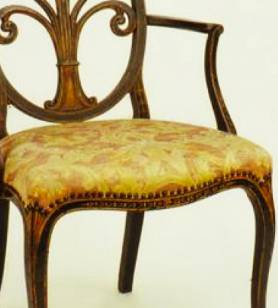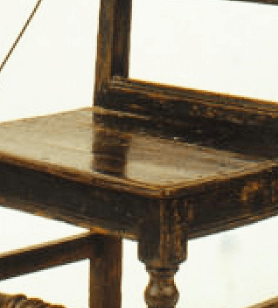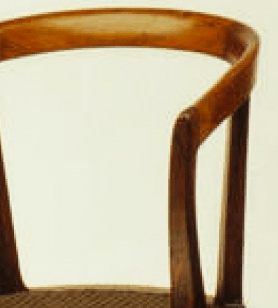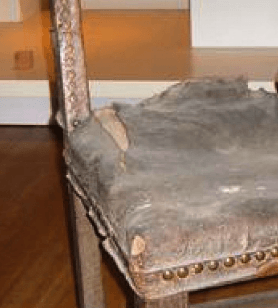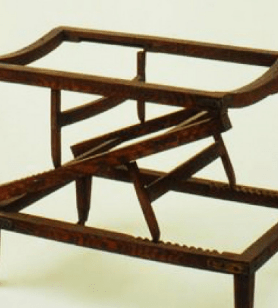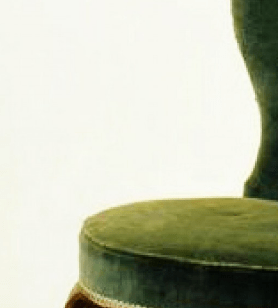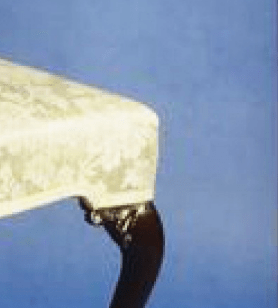The Frederick Parker Collection
About the collection and archive
The Frederick Parker Chair Collection and Archive together form one of the most complete records of furniture making in Britain over a period of some 150 years. It is an outstanding resource for students of furniture history and design and may be visited by appointment at London Metropolitan University.
The Collection
The Frederick Parker Chair Collection comprises around 200 chairs, almost all made in Britain over the past 350 years. The earliest is an oak framed chair with a leather covered seat and back, made in about 1660 and the latest is the Femur Stool, designed by Assa Ashuach in 2013 based on human bone structure and made as a prototype by 3D printing.
Most of the chair collection was formed in the early decades of the 20th century, by Frederick Parker and Sons (see below, A Brief History of Frederick Parker and Parker Knoll). This was a time when antique styles were popular and Parkers bought antiques in order to copy or adapt them as reproductions, less expensive than antiques and better suited to daily use. Most of the chairs collected by the Parkers date from between 1660 and 1830, and include Queen Anne, Georgian and Regency styles.
Many of the antique chairs acquired by the Parkers had already been altered or restored, and some were fakes created by the antiques trade to deceive customers, including the Parkers on occasion. Others were in more or less original condition, and a few even had their original upholstery, and are now especially rare. The Parker Collection grew to over 300 chairs, as well as hundreds of chair parts and plaster casts of mouldings and carvings.

In time, as the taste for antique styles declined, the collection became less useful to the Company and in 1974 the chairs were placed on loan to a country house in Somerset, where they were kept safe but largely unseen. In 1997 Parker Knoll decided to sell the collection, prompting members of the Parker family to form a trust, the Frederick Parker Foundation, to save it. The trust acquired around 170 of the most significant chairs to ensure their future use for educational purposes.
In 2002 the collection was placed on long-term loan to the London Metropolitan University, where it was displayed in a purpose–designed gallery and made accessible for students and the general public. Further chairs were acquired to fill some gaps in the collection, especially to add examples of British design and/or manufacture from the last 70 years, to keep the collection relevant to design students and to encourage studies of both antique and contemporary styles.
In 2013 ownership of the collection was transferred from the trust to the Worshipful Company of Furniture Makers, the City of London Livery Company and a registered charity.
The Furniture Makers are keen to raise awareness of this unique resource and to ensure it is used by pupils and students across the country, encouraging them to pursue a career in the furniture industry. The Frederick Parker Chair Collection remains on loan to the London Metropolitan University, available for study and open to visitors by appointment. For further details follow this link.
The Frederick Parker and Parker Knoll Archive
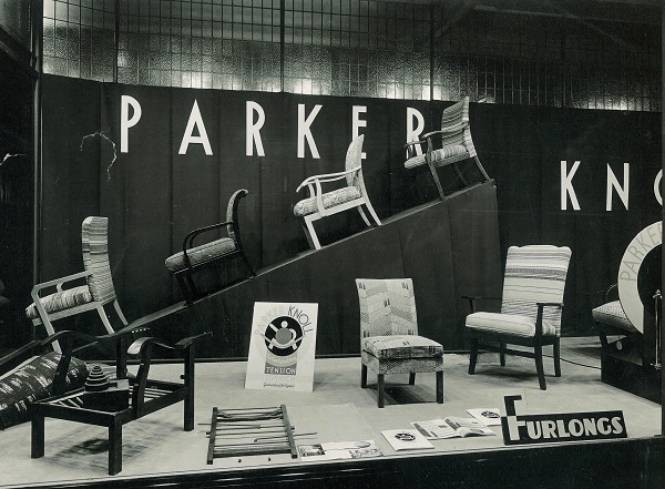
The Frederick Parker and Parker Knoll Archive is a unique record of a British furniture manufacturing company which has been trading for 150 years, from 1869 to the present. There are over 600 boxes of material, including business and financial records, photographs, advertising material, designs, fabric samples, and reference books.
Details of almost every model of furniture made by the company from the 1870s are included. Plans, sketches, catalogues, promotional material, photographs and film make this a comprehensive record of design, production and marketing over more than a century.
The Archive is fully catalogued, accessible online and available for study in person at the London Metropolitan University’s Special Collections facility in east London. For further details follow this link.
A Brief History of Frederick Parker and Parker Knoll

Frederick Parker (1845-1927) was the founder of a successful furniture company, starting in east London in 1869, and moving to High Wycombe in 1898. The company is still in business today, 150 years later, as Parker Knoll.
With his three sons, Harry, William and Thomas, Frederick Parker & Sons established a reputation for quality furniture, especially upholstered chairs and sofas. They sold to the upper end of the domestic market. They also fitted out and furnished government buildings, royal palaces and some of the great Cunard ocean liners of the 1920s and ‘30s. In the 1930s Frederick Parker and Sons formed a partnership with Willi Knoll, a German manufacturer who had developed a new form of tension spring for upholstered chairs and sofas. New models using the tension springs were launched under the brand Parker Knoll, and gradually proved popular. The Company changed its name to Parker Knoll in ‘in the early 1930s’.
During the Second World War, furniture production ceased in order to focus resources on the war, and Parker Knoll turned its manufacturing to military equipment and wooden components for Mosquito aircraft.
They resumed furniture making after the war, when production was still controlled under the Utility Scheme. Designs had to be simple and practical, using a minimum of wood and a limited range of fabrics. Parker Knoll’s Utility model fireside armchairs and Queen Anne style, high-back easy chairs were still in use for decades after the war.
Up to this time the Company had specialised in high-end furniture, but in the 1950s and ‘60s Parker Knoll turned increasingly to the middle market. Production was based in High Wycombe and at a new factory in Chipping Norton. They experimented with new materials such as glass-fibre for seat shells and vacuum-moulded fibre board. In 1966 they introduced the Norton Recliner, technically based on similar chairs in America, but much more refined. The Norton was designed and marketed as a luxury item and proved one of their most successful products ever.
Through a combination of reliable quality and innovative design, Parker Knoll became a household brand in the decades after the War. In the 1980s it took over a number of other companies, forming the Cornwell Parker Group. It remained a family firm, run by the Parkers and their descendants, until it was bought out by Silentnight in 2000.
